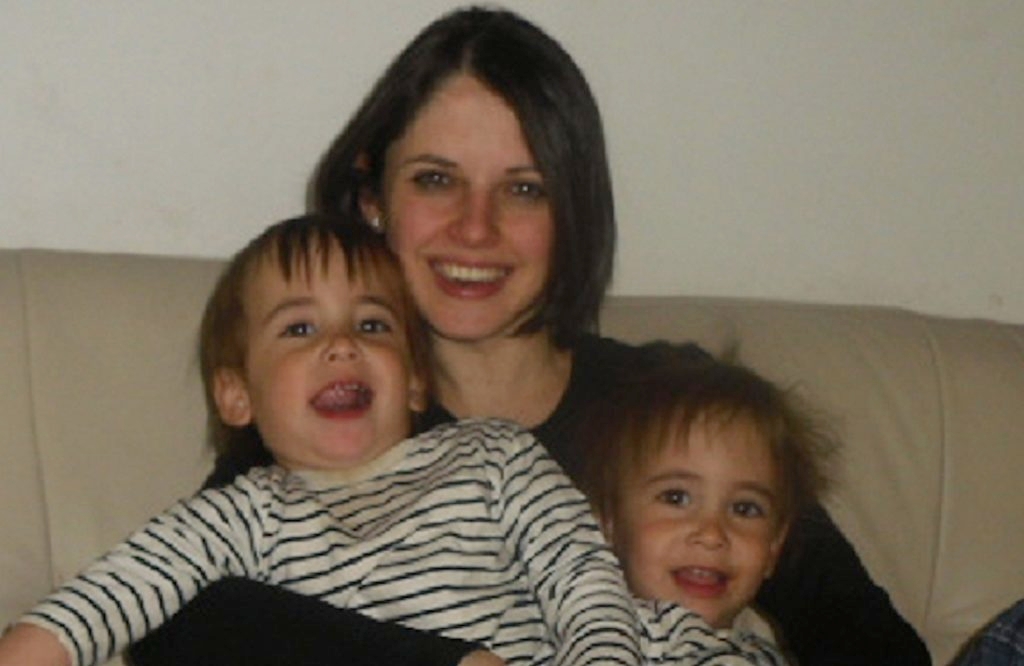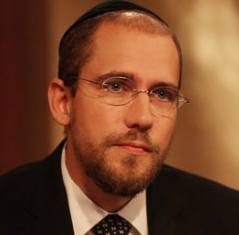http://www.jta.org/2015/01/21/news-opinion/world/beth-alexanders-custody-battle-in-vienna-generating-international-uproar
http://blogs.forward.com/sisterhood-blog/213214/one-jewish-mothers-international-custody-fight/
http://www.timesofisrael.com/sordid-custody-battle-in-vienna-stirs-international-uproar/
http://jewishtimes.com/33783/custody-battle-vienna-generating-international-uproar/

Beth Alexander and her twin boys, Benjamin and Samuel. (Times of Israel)
VIENNA (JTA) — In an apartment in the Austrian capital, Beth Alexander is deleting hundreds of photos of her 5-year-old twin boys from Facebook.
In one picture, Benjamin and Samuel are laughing as they hold a toy. In another they are waiting to be served lunch in their native Vienna.
The ordinary snapshots are the kind uploaded by countless mothers all over the world. Yet Alexander, a British-born modern Orthodox mother in her 30s, is barred from displaying them by order of an Austrian court, which in November ruled in favor of her ex-husband’s motion claiming the photos violated the twins’ privacy.
“Removing these pictures is painful to me,” Alexander told JTA this month in an interview via Skype. “They allow my family back in Britain to sort of keep in touch with the boys and they show that despite all that has been said about me, I’m a good mother and the children are happy when they are with me.”
The injunction is the latest in a series of legal setbacks that have left Alexander with restricted access to her boys and declared barely fit to be a mother — rulings that have led to mounting international criticism and claims of a colossal miscarriage of justice.
Leaders of the British and Austrian Jewish communities have spoken out about what they consider to be a highly unusual case that has unfairly limited Alexander’s maternal rights. Her case even made it to the floor of the British Parliament, where lawmakers last year described it as a Kafkaesque situation that has wrongly maligned Alexander as mentally ill and an unfit mother.
“I have no reason to assume that Alexander is in any way incapable of being a mother,” Schlomo Hofmeister, a prominent Viennese rabbi who knows the Schlesinger case well, told JTA. Hofmeister said it was tragic that the children were deprived of equal access to their mother and called on both parents to “find a time-sharing arrangement in the interest of these children, who are suffering.”
 |
| Rabbi Schlomo Hofmeister |
Alexander, who was known in the media by her married name, Beth Schlesinger, until she changed it recently, was separated from her husband, Michael Schlesinger, in 2009 after three years of marriage. The couple formally divorced last year.
In 2011, a court-commissioned psychologist reported that Alexander had “reduced parenting abilities” and was oblivious to her children’s “significant developmental delay.” Though the report by psychologist Ulrike Willinger also acknowledged Alexander’s “close, loving bond” with her children, it concluded that Schlesinger should receive custody.
An Austrian court agreed, awarding Schlesinger full custody and restricting Alexander’s visitation rights to a few hours every week. In 2011, four policemen removed the children from her care as Alexander was feeding them supper. It would be eight weeks until she saw the children again.
Though the Willinger report’s findings were disputed in two subsequent psychological evaluations, the court refused to reconsider its ruling. Last year, Austria’s Supreme Court rejected Alexander’s appeal without explanation.
Alexander, who has a master’s degree from Cambridge University and works in Vienna as a university lecturer and an English teacher, says her ability to fight for her rights in Austria is severely limited because she is a foreigner without local connections and at first was not fluent in German. But while she has been unsuccessful in the courts, her lobbying efforts are becoming increasingly successful in swaying public opinion in her favor.
Her case was the subject of a debate in Britain’s House of Commons last year, during which lawmaker Graham Stringer made the Kafkaesque reference and cited concerns that Schlesinger may be abusing his family’s alleged ties to justice officials.
“One has to suspect that undue influence and conspiracy were taking place,” Stringer said.
Ivan Lewis, another British lawmaker, called the Austrian justice system’s handling of the case “one of the worst miscarriages of justice,” adding that Alexander “was falsely and cruelly labeled mentally ill and an unfit mother, labels both disproved by independent professionals.”
British Chief Rabbi Ephraim Mirvis and Jonathan Arkush, the vice president of the Board of Deputies of British Jews, have also both spoken out on Alexander’s behalf.
Michael Schlesinger did not respond to several requests by JTA to be interviewed for this article. The couple are no longer in contact, the result of a spiteful breakup during which Schlesinger was removed from the couple’s home on police orders after he sought, unsuccessfully, to have his wife committed to a mental institute.
As a result of the legal battle, Alexander said she cannot meet with journalists at her home lest her ex-husband use such meetings for further litigation.
As she continues to fight in court and lobby for more time with her twins, Alexander uses the time she has with them to compensate for her absence from their daily lives with activities like baking, going to the park, reading stories, and arts and crafts.
“I have to make up in one day what other mothers may do with their children in a week,” Alexander said.
No comments:
Post a Comment